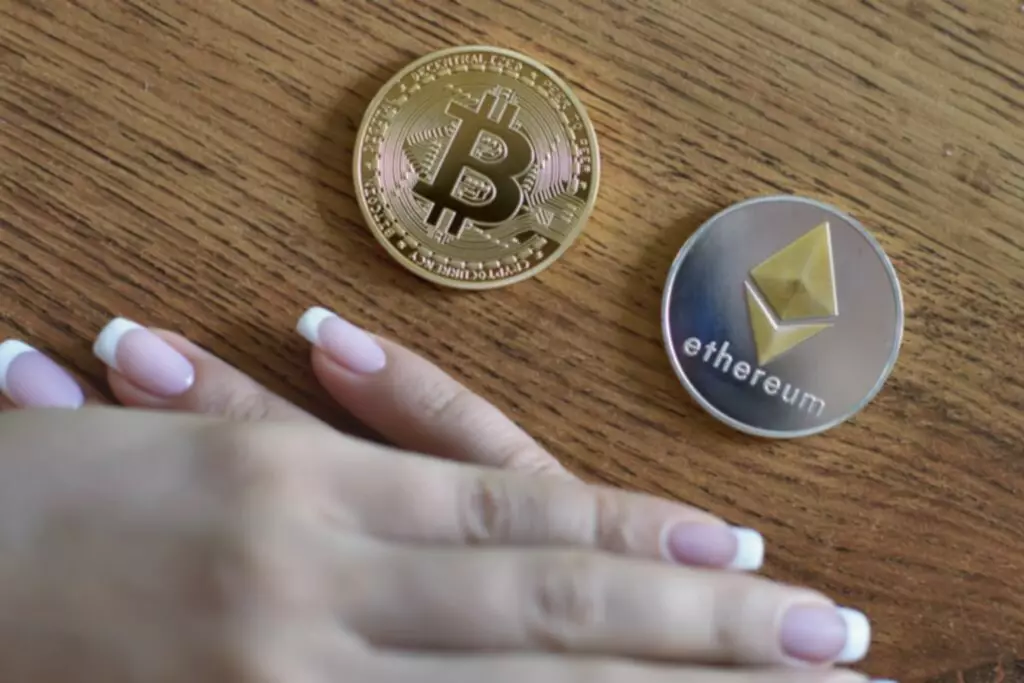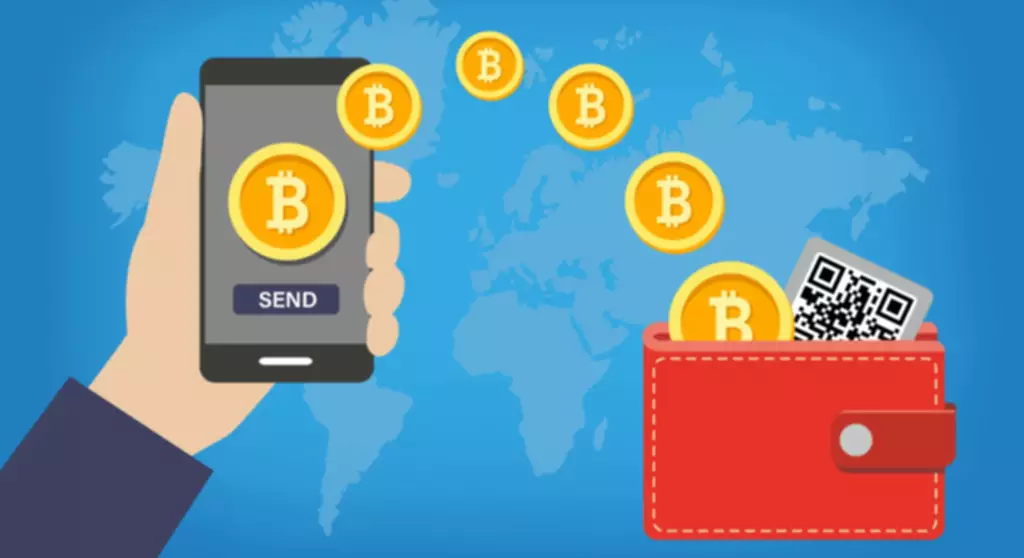4 Fintech Leaders Outline 4 Key Trends For 2022
Content
Our award-winning editors and reporters create honest and accurate content to help you make the right financial decisions. Here’s where fintech startups can really shine, by focusing on where the big banks are falling short. In fact, the recent global recommendations for social distancing, working from home, and flattening the curve are pushing fintech to a broad audience who might not even be aware they’re using it. API as a Service has made it easier than ever before for platforms to integrate new services. The Super App concept isn’t just being embraced exclusively by financial players, but also by non-financial companies that are keen to better serve customers within their ecosystem. The success of the Super App movement might not be as prolific here as in the Far East – where it originated – due to the sheer volume of competition, but it has massive potential to take hold.
In the live music scene, profiteering by scalpers who buy up tickets exclusively for re-selling at higher rates on the secondary market has always been a major issue. Concert venues don’t want to be selling a ticket for $50, for it then to be sold on the secondary market for $300, where they don’t receive any spoils on the re-sale. If a royalty mechanism – represented as an NFT – is built into the ticket itself, the venue and artist can receive a fair share of the commission on tickets sold in the secondary market, a win-win situation. NFTs can ensure royalty distributions are always aligned with the interests of the concert venue and musician throughout the ticket’s lifecycle. NFTs (Non-fungible Tokens) have become commonplace in modern-day vernacular thanks, in large part, to bizarre images of bored apes fetching for jaw-dropping prices.
April 2022: Fintech Wire Monthly
In addition to providing fans with exclusive access to content, artists can ensure that profits aren’t being siphoned by middlemen. Once the infrastructure is in place to facilitate NFT-driven streaming, digital content providers will be prompted to rethink their business model. The massive shift towards remote work has proven things can be done, even if people don’t work face-to-face. The prolonged lockdown has probably changed customer spending habits forever and has impacted many industries, not only e-commerce. Meanwhile, the FinTech stage has grown exponentially, bringing comfort and convenience to everyone, even the unbanked.
This reality of protracted delivery timeframes and abnormally high and unpredictable transportation charges simply isn’t sustainable. Amidst a backdrop of economic uncertainty, the global Fintech ecosystem experienced unprecedented growth in 2020. Then, in 2021, the space reached new heights of innovation, with Fintech companies raising more than $140 billion, three times higher than that of 2020, setting an all-time record. Digital disruption invented and implemented by FinTech companies is a double-edged sword.
- High transportation costs not only affect an operator’s bottom line but are also an important factor in any business decision.
- That includes banks, which are dealing with social distancing by requiring customers to make appointments before they come into a branch, providing only drive-through access, or even closing their branches.
- For a deeper dive into FinTech trends for 2020, download our whitepaper.
- Here are four key trends and opportunities that are on the table for businesses in the year ahead.
- Consumers are starting to trust fintech companies more, an obviously crucial step before they’re willing to share their sensitive financial information.
Increased investment, comprehensive worldwide regulations, and technology innovations combine to spur significant progress in the very near future. With fintech playing a big role in many of the newest tech developments that most people use every day, from PayPal and chatbots to Venmo and online trading—the evolution is already happening. In November of 2019, there were more than 30 fintech companies in the U.S., and those 30 companies had a private market valuation of more than $1B. Consumers are starting to trust fintech companies Crypto services more, an obviously crucial step before they’re willing to share their sensitive financial information. A 2018 survey showed that 68% of people are comfortable conducting financial transactions through their computer or smartphone, and 48% felt that security over their financial transactions had improved since the year before. Just a couple of years ago, the term ‘fintech,’ a mash-up of the words financial technology, was reserved strictly for the financial sector—banks and other financial and lending institutions.
But the most noticeable move is the decision to change its name to Block, so the “Square” brand will be reserved for the merchant-payment business, while Block will be the super-app name. It recently launched an app that includes savings and bill paying functionality, while allowing customers to benefit from shopping and loyalty programs. Additional features are likely to be rolled out in the future, and other companies such as Affirm, Revolut, and Klarna are adopting similar strategies. High transportation costs not only affect an operator’s bottom line but are also an important factor in any business decision. Moreover, the instability and insecurity around arrival times are forcing importers to rethink all their inventory management strategies. In the coming years, we will see a flourishing intersection with fintech – from payments to lending and insurance.
We are compensated in exchange for placement of sponsored products and, services, or by you clicking on certain links posted on our site. Therefore, this compensation may impact how, where and in what order products appear within listing categories. Other factors, such as our own proprietary website rules and whether a product is offered in your area or at your self-selected credit score range can also impact how and where products appear on this site. While we strive to provide a wide range offers, Bankrate does not include information about every financial or credit product or service. Ironically, due to the 2008 financial crises, continued scandals, and lack of alignment with consumer values, people have lost trust in their old banks. This disenchantment with traditional banks means real opportunity for fintech companies, and accounts for the continued increase in investment.
This causes little to no real-time data flow, not enough visibility around container location, and ambiguity around estimated arrival times. In addition, companies in the logistics industry typically insist on cash against documents and are resistant to using digital payment systems that could provide meaningful efficiency gains. The market is going with minimum loveable product, which is an iteration and a whole new approach at the same time. MVP stands for an application that holds minimum value for users and assumes a certain level of tolerated limitations and bugs.
Fintech Trends
Quarantine has changed nearly every aspect of our lives, including how we manage our finances. And when those much-anticipated stimulus checks come in, Americans want to make sure they receive, spend, and invest that money securely. Bankrate is compensated in exchange for featured placement of sponsored products and services, or your clicking on links posted on this website. This compensation may impact how, where and in what order products appear. Bankrate.com does not include all companies or all available products. For consumers, it means sharing your financial data will get easier and safer.

As the coronavirus (COVID-19) spreads across the country, causing the stock market to plummet, businesses are reacting. That includes banks, which are dealing with social distancing by requiring customers to make appointments before they come into a branch, providing only drive-through access, or even closing their branches. Most major banks have their own coronavirus webpages to help customers navigate the uncertain financial environment.
We believe we will see the industry’s infrastructure get rebuilt for freight forwarders, providing new solutions to improve visibility and enhance transportation predictability. Having stable finances is a principle for all businesses, but what can you do, when your clients are late with their payments too often? Instead of fighting with them and being stressed all the time, you can solve the problem once and for all. Thanks to invoice factoring services, you can ensure that your invoices are always paid on time. Now, thanks to some smart FinTech solutions, you don’t even have to do much to make it happen. Let’s find out how online factoring works and which vendors are the best for your business.
Embedded Solutions: The Key To Unlocking Fintechs Future
While we adhere to strict editorial integrity, this post may contain references to products from our partners. If you sign up for one, the account will set you up on a savings schedule and you will receive a debit card that connects to the retailer when you hit your goal. Yes, you could use a savings account,but the experience will also include retailer rewards and other features designed to keep you motivated.

Our goal is to give you the best advice to help you make smart personal finance decisions. We follow strict guidelines to ensure that our editorial content is not influenced by advertisers. Our editorial team receives no direct compensation from advertisers, and our content https://xcritical.com/ is thoroughly fact-checked to ensure accuracy. So, whether you’re reading an article or a review, you can trust that you’re getting credible and dependable information. As technology adoption increases, fintech is predicted to revolutionize across industries.
She joined Code & Pepper for the Ask Me AnyFin session to share her invaluable insights. Celebrities endorsing the tools are on an upswing — Leonardo Dicaprio backs Aspiration. There are even trade publications like Finledger and FintechFutures devoted to the beat.
Fintech Trends To Watch For In 2022
Already, many artists, musicians and other entertainers are using NFTs to strengthen their earning power with digital representations of their content. This is an area to keep an eye on, for the potential of NFTs extends far beyond that of a digital zoo. Research suggests that 96% of Americans don’t understand the basics of NFTs, crypto, and DeFi; clearly the current focus on digital art isn’t translating to the everyday user. Other use cases will be key to the mainstream adoption of NFTs, part of which will see their deployment within the experience economy.
We’re transparent about how we are able to bring quality content, competitive rates, and useful tools to you by explaining how we make money. We will break down the article into few sections to help you navigate the landscape. We will talk about the industry size, FinTech adoption rates, expert opinions, and investments. Please keep in mind that this is not a full-fledged industry report but rather a summary. What are the most disruptive fields of FinTech right now and how did these changes come about? Dorota Zimnoch really understands the mechanisms of innovation as much as she’s aware of the convergence of industries, shared economy and metaverse reality.
In 2021, Accrue Savings offered a glimpse of one by launching a bank account that encourages consumers to save for a product or service before buying it. The startup encourages a save now, buy later mindset by partnering with retailers like Camp and Casper to market these accounts. Our mission is to provide readers with accurate and unbiased information, and we have editorial standards in place to ensure that happens.
Cloud computing and fintech – trends, risks and opportunities – CRN – India – CRN.in
Cloud computing and fintech – trends, risks and opportunities – CRN – India.
Posted: Thu, 29 Sep 2022 05:21:15 GMT [source]
Founded in 1976, Bankrate has a long track record of helping people make smart financial choices. We’ve maintained this reputation for over four decades by demystifying the financial decision-making process and giving people confidence in which actions to take next. For a deeper dive into FinTech trends for 2020, download our whitepaper. This is a set of cherry-picked facts, so dive in to know more about the industry.
The Fintech Forecast
What that means is banks are really starting to highlight their online services. They’re touting their remote banking services, encouraging customers to deposit checks, withdraw money, and even access loan information and services without having to step foot in a branch. Over the past 12 months, we’ve witnessed financial incumbents innovating and adding new solutions to claim their slice of the fintech pie. We’ve also seen top fintech players bundling and adding new value propositions to keep customers in their ecosystem and significantly grow their market share. However, with growing demand for decentralized financial services and a new version of the internet, Web 3.0, the financial services landscape appears to be on the verge of another major shift.
If it goes as intended, it’s also expected to help you improve your financial health in all sorts of ways, such as making it cheaper to access credit. This work is happening behind the scenes, so it won’t require you to change the way you interact with your favorite fintech app either. Bankrate follows a strict editorial policy, so you can trust that our content is honest and accurate. The content created by our editorial staff is objective, factual, and not influenced by our advertisers. Investing apps allow beginners, as well as more experienced investors, to have control over their finances, with low or no commission fees. Brands like Robinhoodmake it easy to invest in stocks, bonds, ETFs, crypto-trading, and more.

No matter what’s what, blockchain trends for 2022 clearly show one thing – the age of distributed databases will continue to go strong, with many opportunities along the way. Other fintech companies let you change your payday frequency more than once and are accessible through your employer or the app store. In 2021, nearly 9 in 10 Americans now use technology to manage their finances, according to a Plaid survey published in October. But there are a lot of fintech offerings you might not know about. All of our content is authored by highly qualified professionals and edited by subject matter experts, who ensure everything we publish is objective, accurate and trustworthy. She oversees editorial coverage of savings and mobile banking articles as well as personal finance courses.
Digital Bank Accounts For Specific Communities Are On The Rise
Today, fintech touches practically everyone’s daily life, from ecommerce and robo-advisors to online lending and mobile wallets. Looking ahead, the potential for NFTs to transform the music and entertainment landscape is boundless. We could see bands creating NFTs around a specific piece of work and releasing it as a limited-edition album with a finite number of copies available.
These Are The 5 Biggest Consumer Fintech Trends To Watch For In 2022
Don’t worry, you don’t have to be technically savvy to use data management tools. You just need to prioritize business goals and figure out how they can help you. Here’s a list of the most interesting business intelligence tools you may find useful. Apps are being built for different stages of the relationship, too. Nymbus, for instance, is developing Hitched, a financial app designed for newlyweds. Onward is an expense tracking app that aims to help co-parents manage their money.
For example, Even partners with employers like Walmart and PayPal to let their hourly employees access up to 50 percent of their earned wages, among other things. The idea is to get paid after a shift, rather than waiting for a check to hit. Earnin, for another, is a standalone app that lets you withdraw some of the wages you’ve already worked for without paying any fees or interest. Some of these services may ask you for optional tips, but you don’t have to pay them anything. While thousands of financial institutions already exist across the country, many consumers are still underserved.

There are no comments